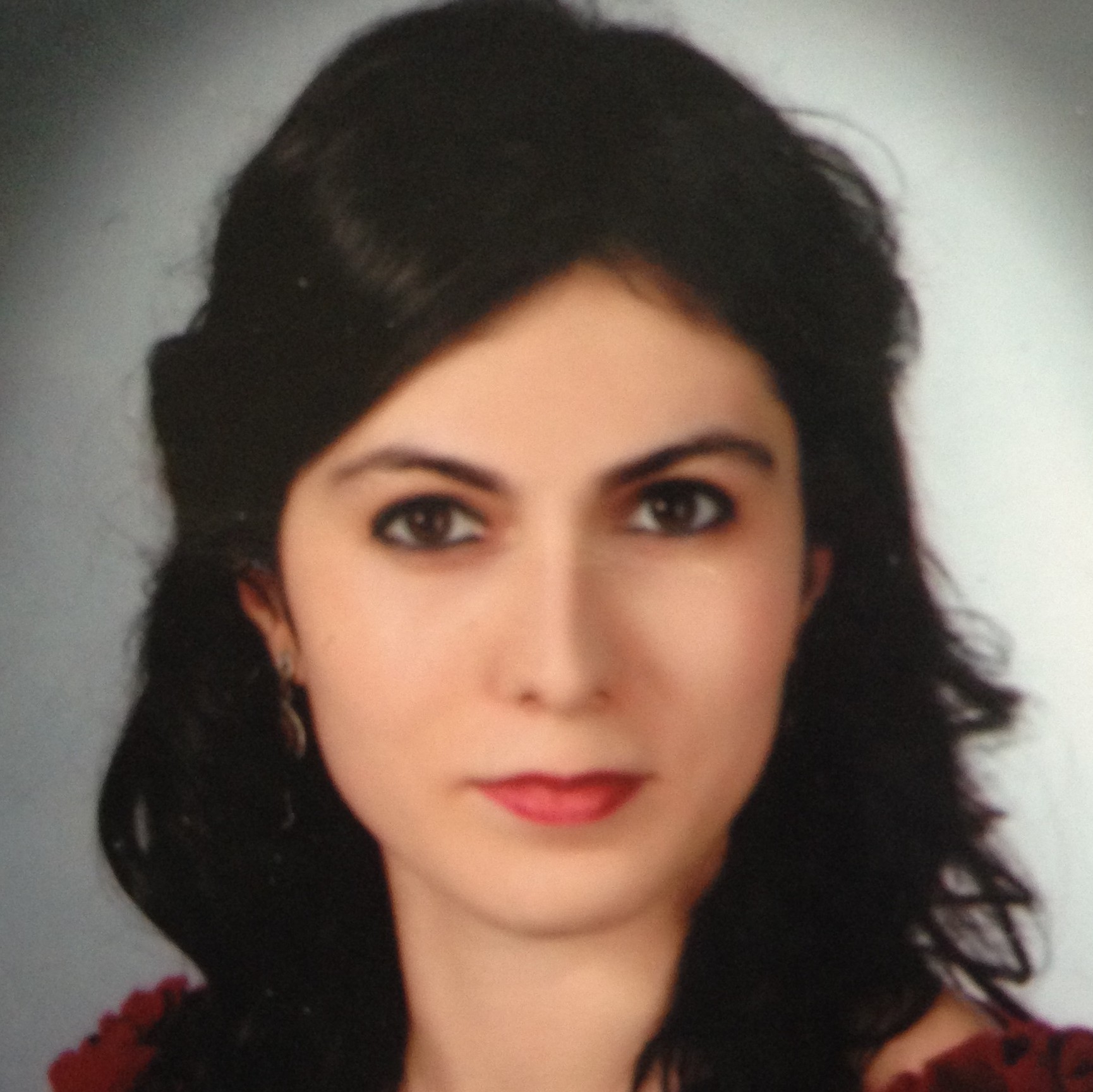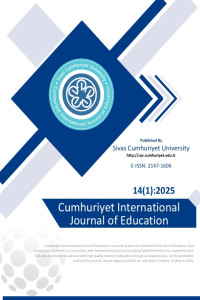Research Article
Aim & Scope
The aim of Cumhuriyet International Education Journal is to contribute to science with interdisciplinary studies/ research article in the field of education, to identify changes and needs in the field of education with a universal perspective and to produce original solutions, to be a resource provider for institutions and organizations in the field of education and program developers, and to provide multi-faceted support to the field of education by including studies prepared in Turkish and English in these fields.
The studies that CUED prioritizes are as follows:
Cumhuriyet International Education Journal publishes high-quality studies based on research article conducted with qualitative, quantitative and mixed methods from a disciplinary/interdisciplinary perspective covering early childhood, primary school, secondary school, high school and higher education levels. The sample of the studies to be evaluated in our journal must include at least one of the following: preschool, primary school, secondary school, teacher candidates, teachers, school principals and education faculty academics.
*If at least one of the following characteristics is found in the studies sent to Cumhuriyet International Education Journal, they will be eliminated in the preliminary examination and will not be included in the referee evaluation process.
1. Studies outside the focus of educational sciences (not every study that addresses the subject of education serves the field of educational sciences. For example: Studies such as engineering education, medical education are outside the scope of our journal.),
2. Studies on psychology outside the field of education that falls within the field of social sciences (For example: The feelings of mothers with preschool children, the thoughts of university students about substance addiction, etc.)
3. Metaphor studies,
4. Studies that include reviews/analyses of textbooks,
5. Studies based solely on the opinions of participants,
6. Studies that include scales, tests, surveys, materials and tools developed based on old curriculums or outdated teaching systems,
7. Studies conducted with weak scientific methods, with low validity and reliability (For example, studies that do not conduct content analysis even though content analysis is mentioned, studies with weak quantitative/qualitative data analysis),
8. Studies whose place and importance in the literature are not clearly explained (For example, the contribution of the study to the literature on the relevant subject, its theoretical place and infrastructure are not qualified (unexplained studies).
9. Simple quantitative studies conducted with only one independent variable (for example, the effect of variable x on variable y),
10. Simple qualitative or quantitative studies conducted with only one data collection tool (for example, analyses conducted only according to demographic variables, only through interviews or scales),
11. Quantitative studies conducted with insufficient sample size (In such studies, the sample size should be determined by considering the numbers accepted in the literature.),
12. Local studies outside the scope of international topics (for example, studies on developing and adapting a scale focused on a local, non-international scale),
Author Guidelines
Studies to be submitted to Cumhuriyet International Education Journal for evaluation must be prepared in accordance with the writing rules specified below.
1. Publication language: Turkish and English.
2. The length of a study must not exceed 9,000 words, excluding the main text, bibliography and appendices.
3. In studies to be submitted to the journal, the short summary must be 150-200 words in Turkish and English and must also include at least 5 keywords. In addition, all studies to be submitted in Turkish or English must include a long summary in English/Turkish of 750-1000 words. Articles that do not include a long summary will not be included in the evaluation process. In original research articles, the long summary in English/Turkish must include the subheadings of purpose, method, findings, discussion and conclusion.
4. Articles must be uploaded to the system in Word format and according to our journal template. Journal Template: https://dergipark.org.tr/tr/download/journal-file/25900
5. It should be ensured that submitted tables and figures do not exceed the journal's page size and comply with APA-7 style. A table or figure should not extend to the next page. If it reaches the end of the page and partially extends, it should be placed on the following page. In addition, 10-point font and single spacing should be used for tables and figures.
6. The main text of empirical studies may include introduction, method, findings, discussion and conclusion sections. The method section should include subsections such as design, universe and sample, study group or participants, data collection tools and analysis of data, etc.
7. APA (7th Edition) style should be used for references, in-text citations, titles, tables and figures. For detailed information: https://apastyle.apa.org/instructional-aids/reference-examples.pdf
8. There should be no information about the author(s) in the file uploaded to the system and in the file name. In Microsoft Word documents, the username should be removed from the File menu, General > Options tab, and all information that will allow the author to be identified should be deleted.
Ethical Principles and Publication Policy
PUBLICATION ETHICS
A number of ethical policies have been developed by the Editorial Board in order to ensure that the studies published in Cumhuriyet International Education Journal (CUED) are impartial and ethical. The ethical duties and responsibilities included in CUED have been prepared by taking into consideration the publication policies of journals scanned in national and international areas and the guidelines and policies published by the Committee on Publication Ethics (COPE) as open access.
Ethical Responsibilities of Authors
Author(s) who submit a study to CUED are expected to comply with the following ethical responsibilities:
The studies submitted by the author(s) are expected to be original and up-to-date.
Author(s) must fully and accurately reference and/or quote all studies they have used.
People who have not contributed to the content of the study should not be indicated as authors. Situations and relationships that may constitute a conflict of interest (if any) should be explained.
The raw data regarding their articles may be requested from the author(s) within the framework of the evaluation processes.
Author(s) must submit the requested data and information to the publication and/or scientific board.
If the author(s) notice a mistake or error regarding their published work under evaluation, they are obliged to inform the journal editor or publisher, and to cooperate with the editor in correcting or withdrawing their work.
Authors cannot have their work in the application process of more than one journal at the same time.
A work published in another journal cannot be sent to CUED.
A work sent to another journal and whose evaluation has not yet been completed cannot be sent to CUED.
No action such as adding or removing authors or changing the order of authors can be requested for a work whose evaluation process has started.
Author Rights
Author(s)
They can specify the referees to whom they do not want their work to be sent due to conflict of interest and/or ethical reasons.
They can withdraw their work that has not yet been published during the evaluation process.
They have the right to object to referee reports and editorial decisions.
They can request corrections (erratum) for material errors that occur during the printing process, for problematic areas in the first issue to be published, or for information errors that they themselves have caused.
Editors' Ethical Duties and Responsibilities
They are responsible for ensuring the development of the journal in the national and international arena,
Managing the processes aimed at increasing the quality of published studies,
Conducting the implementation processes of ethical rules for all stakeholders of the journal,
Updating the publishing and ethical policies in order to contribute to the development of the journal,
Editing the journal's web page and keeping it up to date.
To take into account the feedback of the readers regarding journal publication, scope and ethics,
To develop the studies published in CUED by taking into account the interests and needs of the readers,
To answer the questions from the readers within the framework of ethical rules,
To hold meetings with the Editorial Board at certain intervals,
To provide the Board with the information and guidance they may need regarding CUED’s publication and ethical policies,
To provide training to the Board regarding CUED’s publication and ethical policies when needed,
To develop the journal by taking into account the feedback from the Board,
To ensure that the Board members are impartial,
To encourage the Board to evaluate the studies within the framework of scientific criteria,
They are responsible for communicating with the relevant Board member regarding the evaluation according to the subject of the candidate study.
Ethical Responsibilities and Duties of Field Editors
To determine a referee suitable for the subject of the candidate study,
To provide the information and guidance that the referees may need during the evaluation phase,
To monitor whether there is a conflict of interest between the authors and the referees,
To keep the information regarding the referee who made the evaluation confidential They are responsible for keeping the reviewers impartial,
Answering reviewers’ questions about publication and ethical policies,
Making updates to improve the reviewer pool,
Reminding reviewers about the review period,
Encouraging reviewers to evaluate in a constructive, polite and appropriate manner.
Ethical Responsibilities of Referees
Articles sent to CUED are sent anonymously to at least two referees in the relevant field for evaluation. In case of equality of positive and negative opinions about the article in referee evaluations, the opinion of the editor or a third referee is taken.
A double-blind referee evaluation process is adopted in CUED, the author and the referee are unaware of each other's identities. In this context, referees who evaluate studies in CUED are expected to have the following ethical responsibilities:
Reading CUED's publication principles
Agreeing to evaluate only studies related to their field of expertise. Not accepting an evaluation just for the sake of having an idea about the subject of the article, even though it is not their area of expertise,
Refusing to evaluate when they realize that they cannot be impartial while evaluating,
Completing the evaluation process within a certain time frame,
Making evaluations within the framework of impartiality and confidentiality,
Refusing to evaluate when they encounter a situation such as a conflict of interest and informing the editor about this situation,
Informing the editor about the situation when they detect that the article they are evaluating is being sent to another journal at the same time,
Making the evaluations constructively and politely. Not making personal comments such as hostility, insult and slander,
*Articles sent for publication in CUED must not have been published or sent for publication in another journal. Papers previously presented at a congress - provided that the study has not been published in its entirety in the congress book - and articles compiled from postgraduate thesis studies must be indicated at the end of the page with a footnote containing the necessary information. All responsibilities for the published articles belong to the author(s).
JOURNAL POLICY
Refereeing and Printing Processes
The studies that reach the journal are subject to a preliminary review by the Editorial Board in terms of the journal's scope. As a result of this review, studies that are deemed appropriate are assigned to the secretariat. The secretariat reviews the article files and checks and checks the compliance of the mandatory files with the PRELIMINARY REVIEW CHECKLIST. If there is a relevant correction, it forwards it to the author together with the checklist and requests corrections. When the relevant corrections are completed, if there are no problems with the article files, a field editor is assigned. The field editor submits the article to at least two referees for evaluation using the blind referee method. The referees are given 30 days to evaluate and a new referee is assigned instead of the referee who does not respond within this period. In order for the candidate article to be published in the journal, it must receive a positive opinion from at least two referees. If one of the referees gives a positive opinion and the other gives a negative opinion, the study is submitted to the opinion of a third referee. The author(s) are obliged to make the corrections suggested by the referees (if any) within 30 days. Articles that receive a publishable report from the referees and are checked by the journal editorial board enter the publication process. The final form of the articles is given by the author(s). Articles accepted for publication are given a DOI number and these articles are included in arrangements such as language and layout. They are then published in an appropriate issue with the decision of the Editorial Board. No changes can be made to the articles that are given their final form and are accepted for publication.
Referees do not have information about the identity of the author(s), and authors do not have information about the identity of the referees. The journal editorial board is responsible for ensuring confidentiality in this regard.
Open Access Policy
CUED is an Open Access journal and offers its published content directly to open access. The journal aims to contribute to the support and development of science with its published content through the Open Access policy. Provided that the source is cited in known standards, all usage rights other than commercial use and content modification (online linking, copying, printing, reproduction in any physical medium, distribution, etc.) are available for use under the "Creative Commons Attribution 4.0 International License" (unless otherwise stated in the relevant content). The source can be copied, distributed and reused for non-commercial purposes, provided that it is cited, but no changes can be made to it. Written permission must be obtained from the publisher for commercial use of the content.
Plagiarism (Plagiarism) Scanning
In addition to the plagiarism report taken by the Dergipark system intihal.net, the report obtained from software such as iThenticate© and Turnitin© for all candidate articles must also be uploaded to the article files. The relevant reports must include the full text of the article written in the journal template and the plagiarism page together. There must be a match between the ratio of the intihal.net report and the iThenticate© report (there may be a few points difference). The similarity ratio of the entire article must be 20% and below. THIS RATE WILL NOT CHANGE EVEN IF THE ARTICLE IS DERIVED FROM A THESIS STUDY. CUED has the right to reject all candidate articles that contain academic plagiarism at the editing stage.
Price Policy
Dergimizde yayımlanan makalelerden herhangi bir ücret talep edilmemektedir.
Indexes
Citation Indexes
Other Indexes
Journal Boards
İmtiyaz Sahibi (Dekan)

Publication Coordinator

Editor
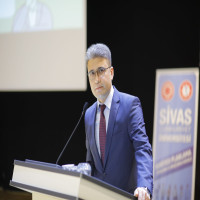
Assistant Editor

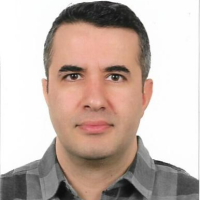
Sivas Cumhuriyet Üniversitesi Eğitim Fakültesi Eğitimde Ölçme ve Değerlendirme ABD başkanı
Alan Editörleri (Matematik ve Fen Bilimleri Eğitimi)

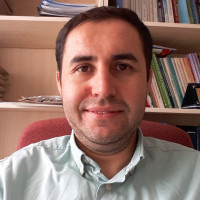

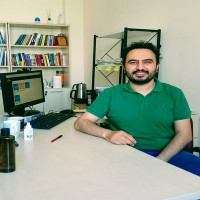

Alan Editörleri (Temel Eğitim)


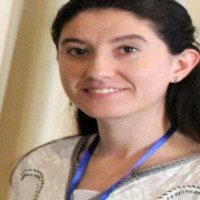
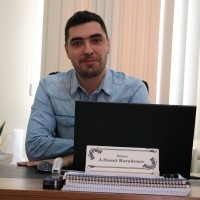
Alan Editörleri (Türkçe ve Sosyal Bilgiler Eğitimi)


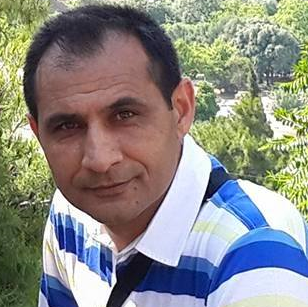


Alan Editörleri (Özel Eğitim)


Alan Editörleri (Eğitim Bilimleri)
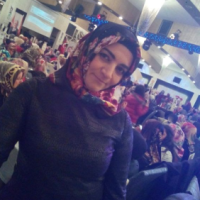




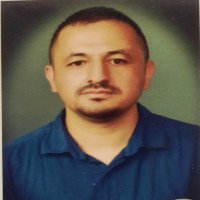
Alan Editörleri (Yabancı Diller Eğitimi)
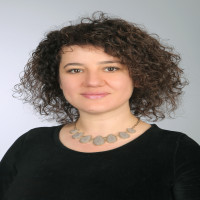
Fine Arts Education

She graduated from Cumhuriyet University Faculty of Education, Department of Fine Arts, Art Education Department in 2005, and from the same university's Institute of Educational Sciences, Art Education Master's Program in 2016. In 2018, she completed his PhD at Ankara University Institute of Educational Sciences Fine Arts Education Program in 2021. She received the title of Associate Professor in 2022. She still continues her artistic and academic studies at Sivas Cumhuriyet University Faculty of Education, Department of Fine Arts Education, Department of Art Education, where she was appointed as a lecturer in 2016. She has authored many articles and book chapters on art therapy and semiotics.
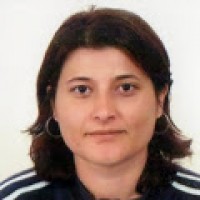
 Web
Web
statistik editor
Dil Editörleri
